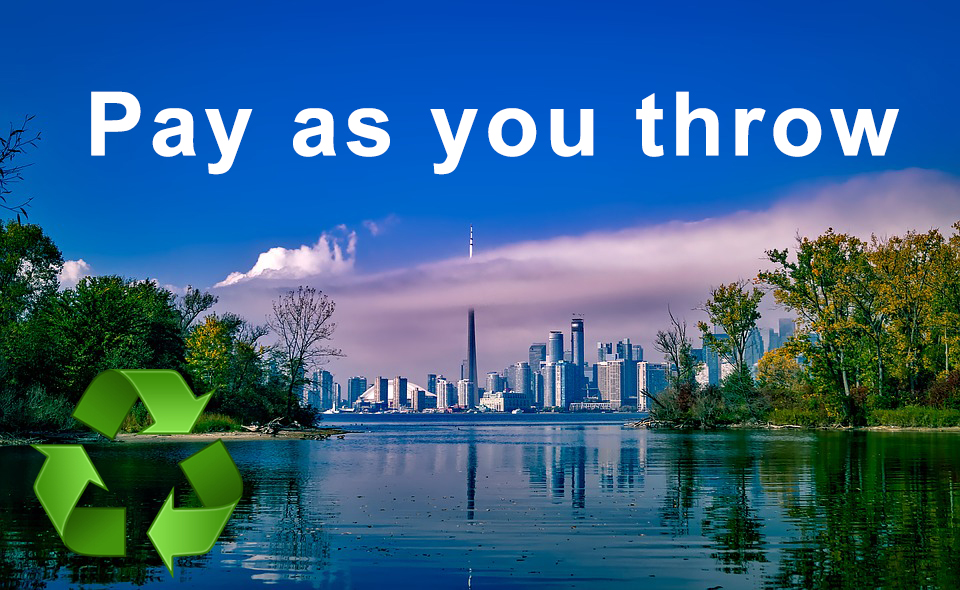Is a ‘Pay as you Throw’ Policy worth Considering for Toronto Waste Management – a new plan

Imagine a system where every time you put garbage out to the curb, later that month, you’d receive a bill in the mail for ‘garbage services rendered’.
This is a system supported and being proposed by some environmental groups across Canada as a way of reducing waste production. The idea behind it would essentially be a tax to municipal governments supporting waste management efforts any time one puts out garbage.
Conversely, should a home not put out any garbage, they don’t receive a bill at all. Though proponents say this incentivizes waste reduction and creates a more efficient system, some have argued it could have a negative impact on companies or households looking to avoid a bill and choosing to dispose of their waste by illegal means.
Inarguably, any Canadian city using flat monthly fees for waste collection do not see the same waste reduction incentivization. In fact, for argument’s sake, a system like this may support high waste output. For households putting out high amounts of waste, the services they receive are subsidized by households who put out less than average and who still have to pay the same collection fee.
A report released in October, 2018 by Canada’s Ecofiscal Commission, a non-partisan research group advocates for an alternative approach to waste collection compared to this ‘flat fee’ system currently used.
The ‘pay as you throw’ system would save money in the long-term, according to the CEC report, and here’s how. Torontonians would have to pay a fee any time they put out their garbage bin. If you don’t put out the bin, you pay no fee and garbage collection services don’t have to pick up your bin resulting in higher efficiencies. If a Torontonian has a bin that isn’t full, why put it out for collection when you can save it until next week – this is the argument being made.
Subsequently, adopting a ‘pay as you throw’ system would presumably reduce property taxes resulting in user fees being the sole financial source of support for garbage collection. Every Canadian city works a little different when it comes to how they fund their waste collection services and the systems they use to support waste management. For example, the City of Calgary uses a combination of property taxes and monthly fees for garbage collection. Comparatively, Beaconsfield, Quebec has a waste collection system where households pay 40 cents for small bin pick-up and $1.20 for large bin pick-up.
Notwithstanding, a major barrier to implementing a change like this is that the City of Toronto would need to track which homes put out a bin and which ones do not. Some have argued it’s possible to do this using small RFID tags which can be quickly scanned to uniquely identify each bin as it is picked up by a garbage collector and dumped. Nevertheless, the model using RFID tags have been proven. For example, Calgary uses RFID tags to identify bins in need of maintenance and the small community of Beaconsfield, Quebec also uses RFID tags to track bins in its pay-as-you-throw system.
Would such a system work for a city as large as Toronto and with as many diverse waste management needs as we have here – this remains unclear. If there are significant cost savings that can be identified, a ‘pay as you throw’ system might be something for City Council to examine in the years to come.
https://www.garbagebinrentals.ca/contact-excavation-demolition-disposal-specialist.html


